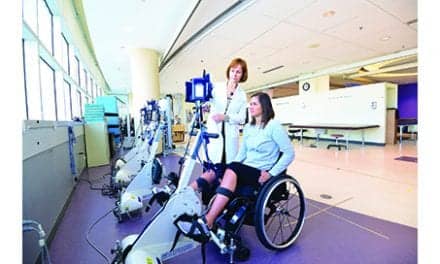Insightec, a global healthcare company dedicated to using acoustic energy to transform patient care, announces the publication of a large prospective, long-term follow-up study of unilateral MRI-guided focused ultrasound (MRgFUS) thalamotomy for essential tremor.
This randomized, controlled, multi-center study, recently published in the Journal of Neurosurgery, describes the long-term safety and efficacy of unilateral MRI-guided focused ultrasound (MRgFUS) thalamotomy for medication-refractory essential tremor using the Exablate System.
The data showed the durability of tremor reduction in patients’ (n=40) treated hand, which remained significantly improved at five years. This 73.1% improvement in tremor severity (CRST Part A) is considered clinically meaningful and is consistent with previously published data from this cohort.
Importantly, quality of life (QUEST) and functional disability (CRST Part C) also remained sustained from baseline. In addition, no new adverse events related to the procedure were reported from the 12-month timepoint to the last follow-up at 5-years. The publication shows that unilateral Exablate MRgFUS thalamotomy shows sustained and significant tremor improvement at five years with an overall improvement in quality-of-life measures and without any progressive or delayed complications.
“We are happy to see the results from this study. The sustained tremor improvement over five years is a testament to the tireless work of our doctors and partner treatment centers,” said Maurice R. Ferré, MD, CEO and the Chairman of the Board of Directors at Insightec. “This data shows that using MRI-guided focused ultrasound to treat essential tremor is safe and effective. We will continue future progress in finding other treatment options for patients for whom focused ultrasound can be a life-altering option.”
The study was sponsored by Insightec and conducted at eight centers in the US, Canada, South Korea, and Japan.
[Source(s): Insightec Ltd, PR Newswire]
Related Content:
Patients with Essential Tremor and Parkinson’s Have Higher Comorbidities and Costs, Per Cala Health Research





